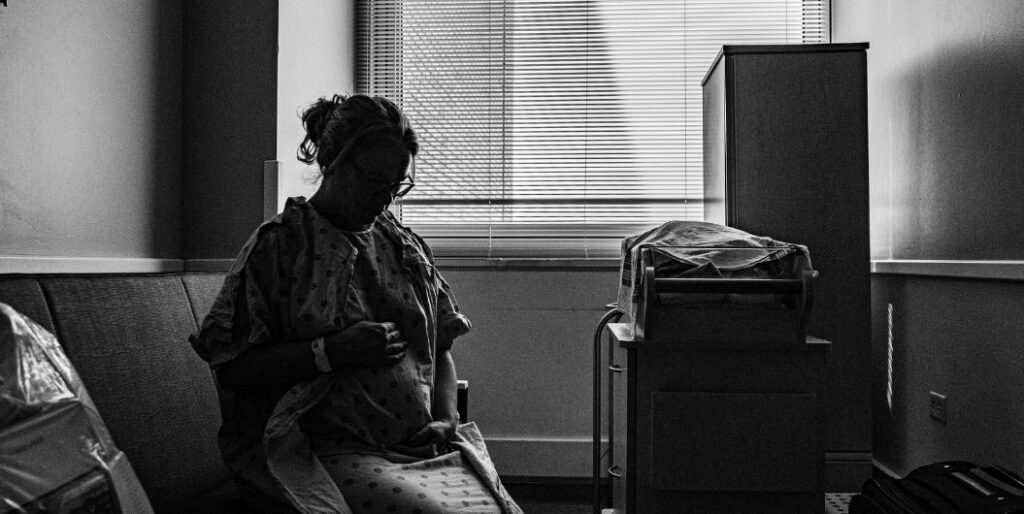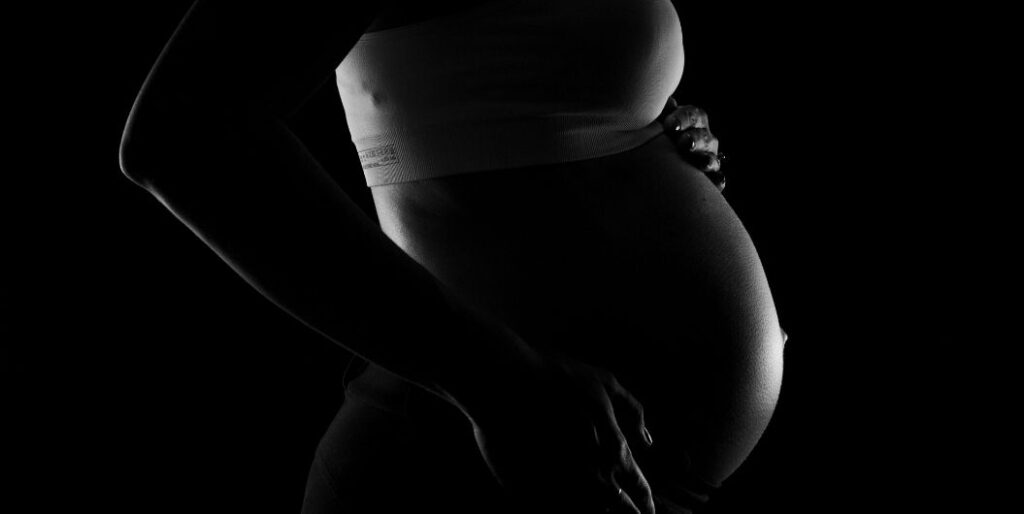Depression During Pregnancy

While stress, changes in your body and raging hormones make for a roller coaster ride during pregnancy for just about every woman, about 10% suffer with legitimate pregnancy depression. Depression during pregnancy may be different for every woman experiencing it, but is more extreme than the typical mood swings, anxiety and emotional highs and lows typically associated with pregnancy. Since depression during pregnancy can adversely impact both you and your baby, it is important that you seek medical treatment if you are experiencing signs of pregnancy depression.
It was once commonly believed that the pregnancy hormones were helpful in warding off depression during pregnancy. In some cases, the opposite may be true: the dramatic spike in hormones in pregnant women may be to blame in a disturbance of the brain’s biochemistry. This disruption can lead to depression during pregnancy. Many women fail to get help with their depression because they believe that it is perfectly normal to have ups and downs during pregnancy.

Symptoms of Depression During Pregnancy
Most signs of depression apply to pregnant women as well. Common symptoms of pregnancy depression include:
- Fatigue: Pregnant women are often tired — especially in the first trimester. While you may often feel extreme fatigue on a regular basis, feeling so tired that you cannot function normally is cause for concern.
- Concentration: Some women who are suffering with depression during pregnancy find that they experience an extreme lack of focus and concentration most of the time.
- Lack of Interest: You may be suffering from depression if you find that you have lost interest in doing your favorite things, spending time with loved ones, and even your pregnancy.
- Emotions: Feelings of extreme sadness, moodiness, anger and frequent bouts of crying are all symptoms of potential depression.
- Appetite: Unless you’re suffering with morning sickness, most pregnant women maintain a good appetite through most of their pregnancy. If you’ve lost interest in food, you should make a point of telling your doctor.
- Guilt/Hopelessness: Many depressed women will suffer with unfounded feelings of guilt and hopelessness which consume them nearly constantly.
- Anxiety: If you are having nearly constant anxiety about the pregnancy and the baby which result in panic attacks, you should call your doctor immediately. While some anxiety about how your pregnancy is progressing, and the baby’s health is normal, an unusual fear about it is cause for concern.

Risk Factors for Depression During Pregnancy:
- Personal/Family History of depression, postpartum depression or mental illness.
- Additional stress related to relationship(s), job, move, finances, etc.
- Infertility issues that made it difficult for you to get pregnant.
- Previous miscarriage(s)
- Complications during the pregnancy which required additional treatment or bed rest
- Abuse, either past or current
- Unplanned pregnancy
Depression during pregnancy should be treated using a combination of antidepressant medications and therapy. There are many risks attributed to depression during pregnancy which include preterm labor, detrimental effects on the baby, you and those around you. Not only will it be more difficult to cope with, depression during pregnancy robs you of the joy that you should be experiencing during your pregnancy. If you feel that you are experiencing depression during your pregnancy, it is important to get it under control now — 50% of pregnant women who have depression will have postpartum depression. By treating depression during pregnancy, you and your doctor will know that you will be ready to address postpartum depression, should depression continue after the baby’s birth.
In addition to conventional treatments, obtaining an ESA (Emotional Support Animal) letter can be a beneficial step for some pregnant women experiencing depression. These letters, prescribed by a licensed mental health professional, acknowledge the therapeutic benefits of having an emotional support animal. For women navigating the challenges of pregnancy depression, an emotional support animal can provide comfort, reduce feelings of anxiety and loneliness, and offer unconditional support during difficult times. It’s important to discuss this option with your healthcare provider to determine if it could be a helpful part of your treatment plan.
